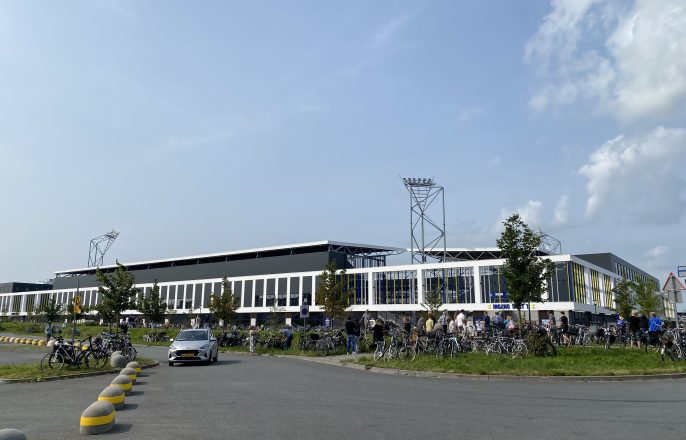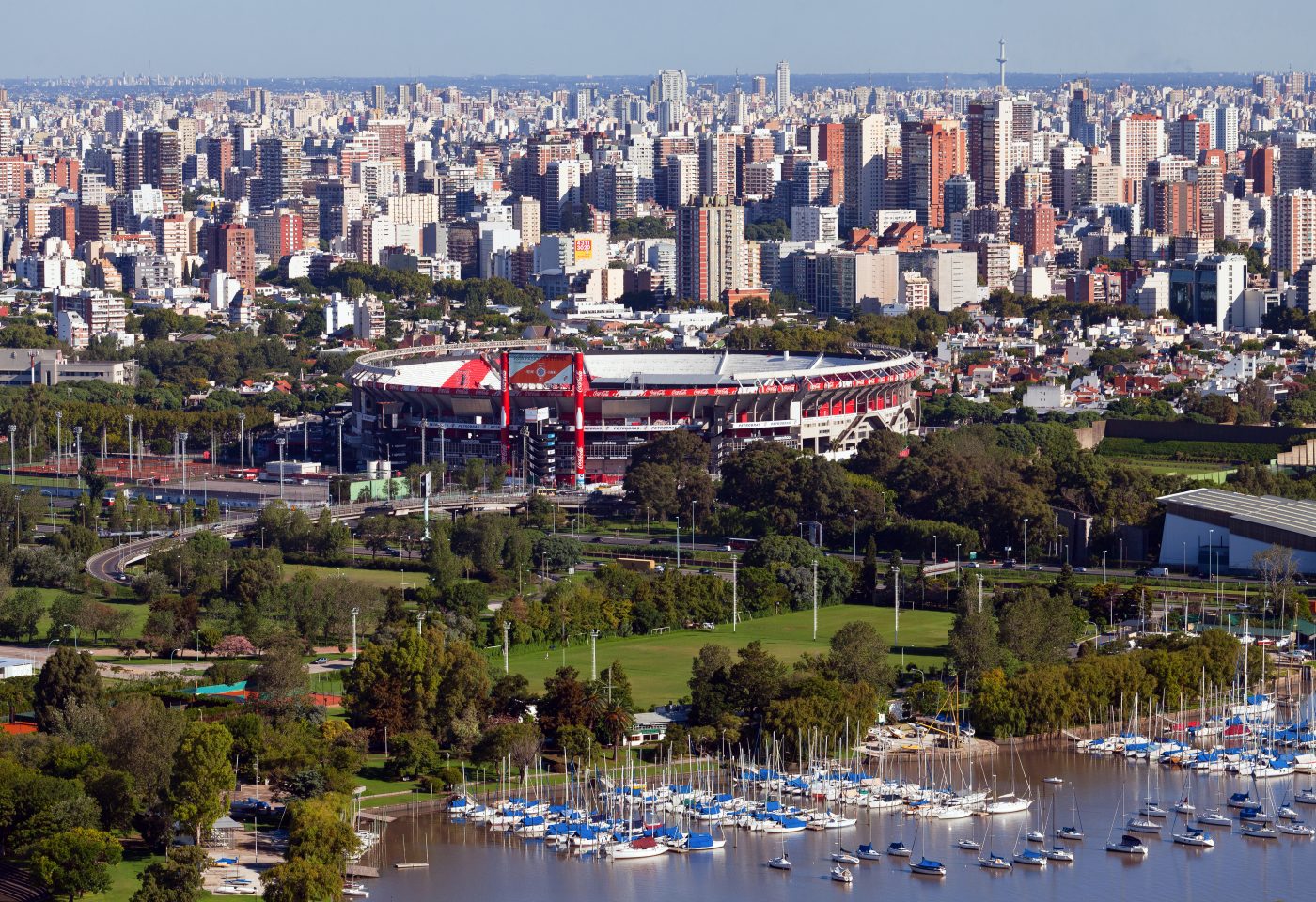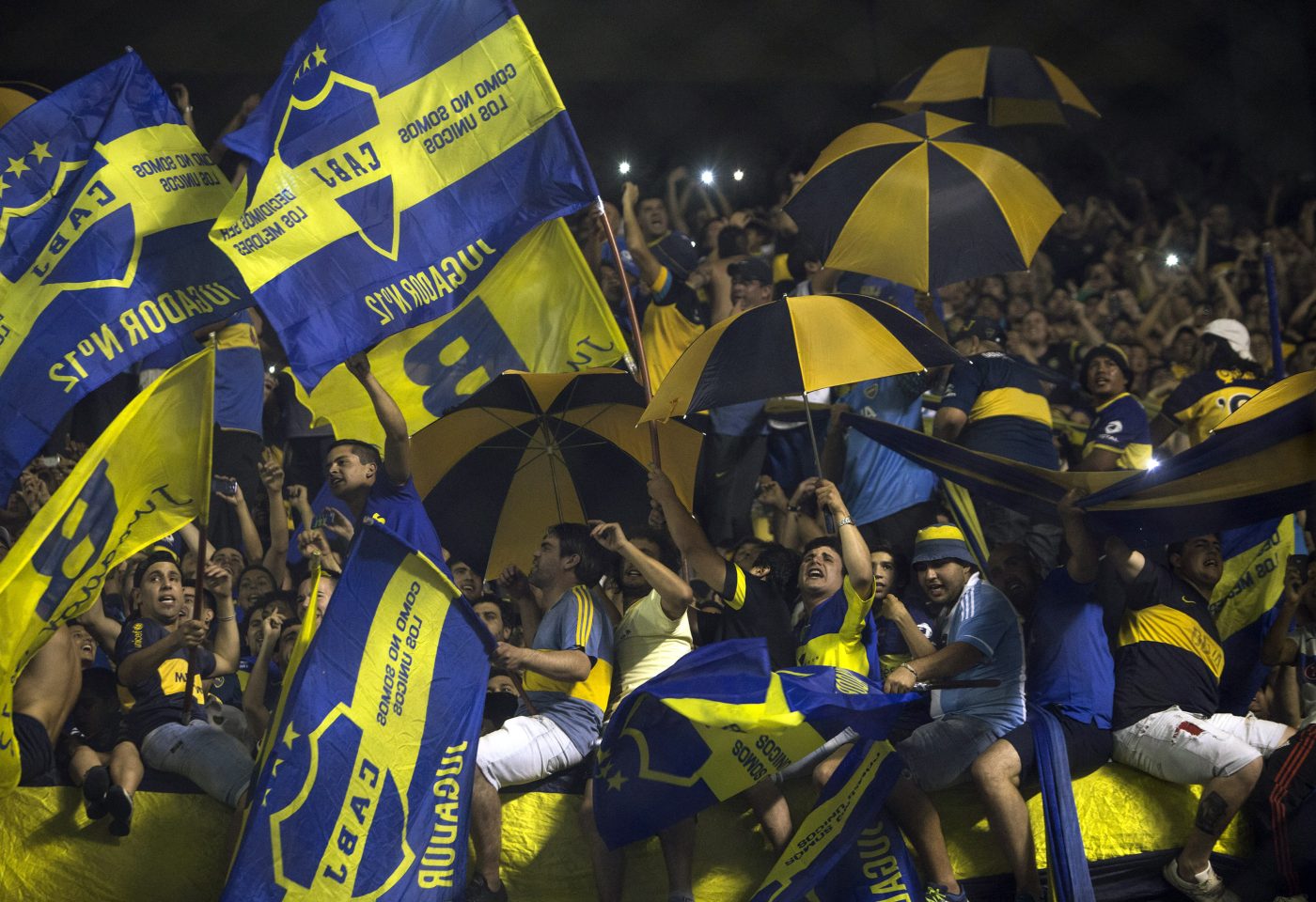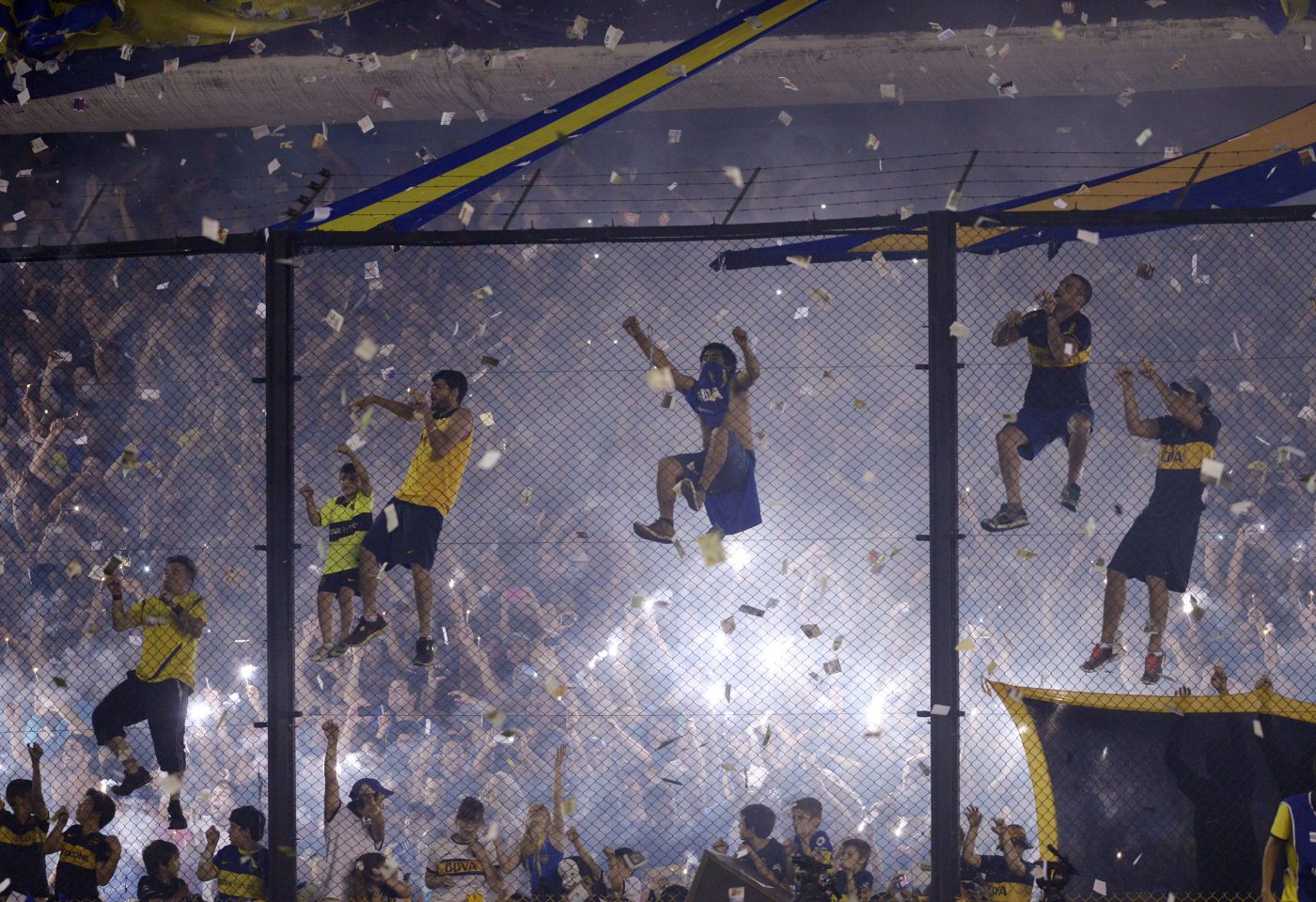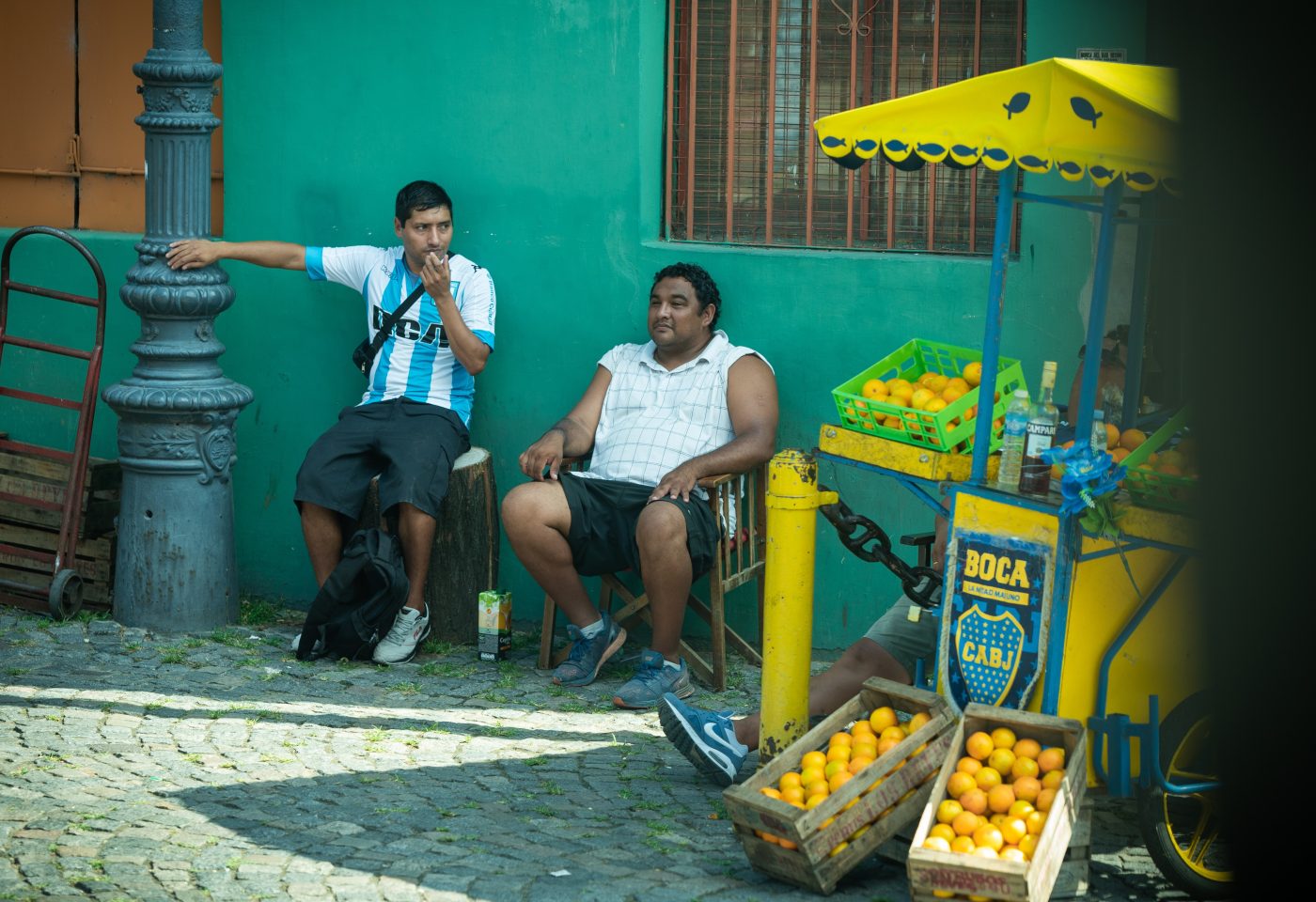Here's what you need to know for your bucket list trip to Buenos Aires
It is at the top of almost every football fan's bucket list: a trip to Buenos Aires, the most overwhelming football city in the world. But what do you need to know before planning your trip? SANTOS will give you some useful tips.

No better football city than this
We can be brief: Buenos Aires beats everything. Countless football clubs with their own stadiums crisscross the city. The cafes with all their football souvenirs. The football shops and the markets. Unrivalled wines and steaks. The nightlife. There are traces of Diego Maradona. There is no better way to discover Buenos Aires than by simply following the scent of football.
We won't be complete in this article, far from it, so this will certainly not be our last guide to Argentina's capital. But these are already some useful, practical tips. To help you on your way (and make you feel good).
Please note: of course, take into account all the measures and developments surrounding Covid-19. Travel wisely and responsibly.
Look at the schedule
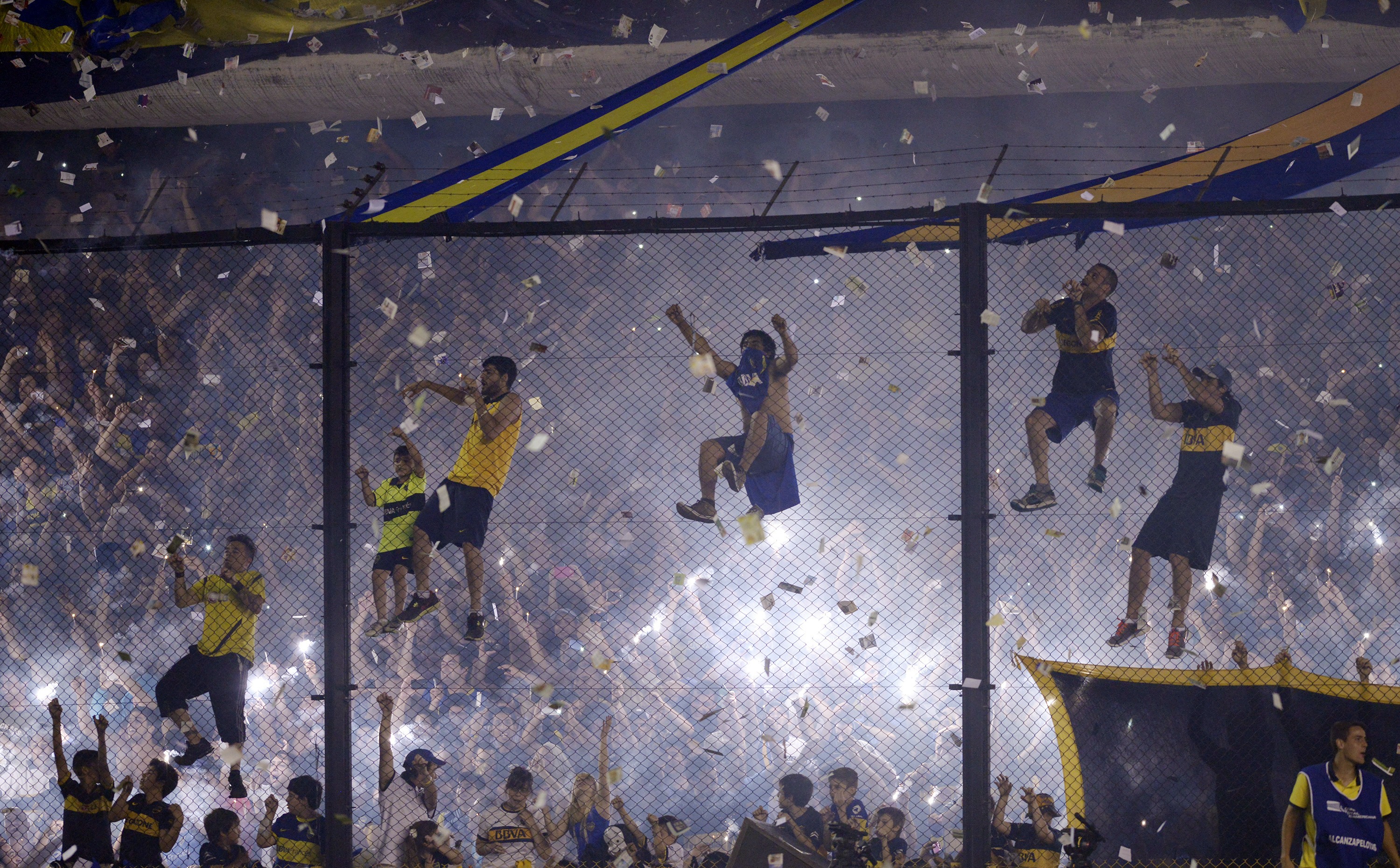
There is plenty of choice in Buenos Aires, but if you want to go to a specific derby, or necessarily to a match in La Bombonera, it is useful to first assess the game schedule. Roughly speaking, the football season normally runs the same as in Europe (although it is warm in Argentina when it is 'our' winter and vice versa), but the competition format is regularly changed. That doesn't always make things clear.
The World Cup in Qatar has turned things upside down for this year. The regular season of 2022 starts in May - and runs until October 2022. Check out sites such as Soccerway, where they are up-to-date with fixtures (Keep in mind the time difference).
Important to know: Argentine national television considers football to be a kind of fundamental right, which is why an incredible number of matches are broadcast live and spread over the entire (long) weekend, from Friday to Monday. This is ideal if you want to visit multiple matches, but it does mean that the time of matches can change, sometimes even a few weeks before kick-off. So book your trip 'well' to avoid disappointment.
A small reassurance: the top matches are almost always at 'prime time' on Saturday or Sunday. So they don't have Boca Juniors-River Plate playing on a Monday afternoon, but perhaps a match for someone like San Telmo.
Tickets? Don't worry, but be alert

Officially you can't even buy a ticket for a match in La Bombonera, but don't panic, you can book your flight with peace of mind. There are always ways to get things arranged in Argentina.
Apart from Boca Juniors: for most matches in Argentina it is no problem at all to get tickets. The guidelines are often inimitable, the method of pre-sales differs per club and even per match, but the informal circuit is large. For tourists, an exception is often made with love.
(As mentioned, Boca Juniors is by far the biggest challenge, followed by River Plate. Read the next block for more information about these two clubs in particular.)
What will really help: a local guide or 'broker' who helps you with all kinds of practical matters during your trip to Argentina. Often hotels and Airbnb's have friendly 'men' who are happy to help you arrange taxis, book tickets or make restaurant reservations. Taxi drivers are often willing to do this with pleasure.
You pay a little extra for that, of course, but it's ideal: certainly also to buy tickets for matches for a decent price. Your guide often knows how to temporarily arrange a membership card, or to explain at the cash register that you are a tourist. There is a good chance that he still has a friend with a membership card for Boca Juniors. Please note: it is customary in Argentina that you pay a fee for this type of service.
Tickets for Boca Juniors en River Plate
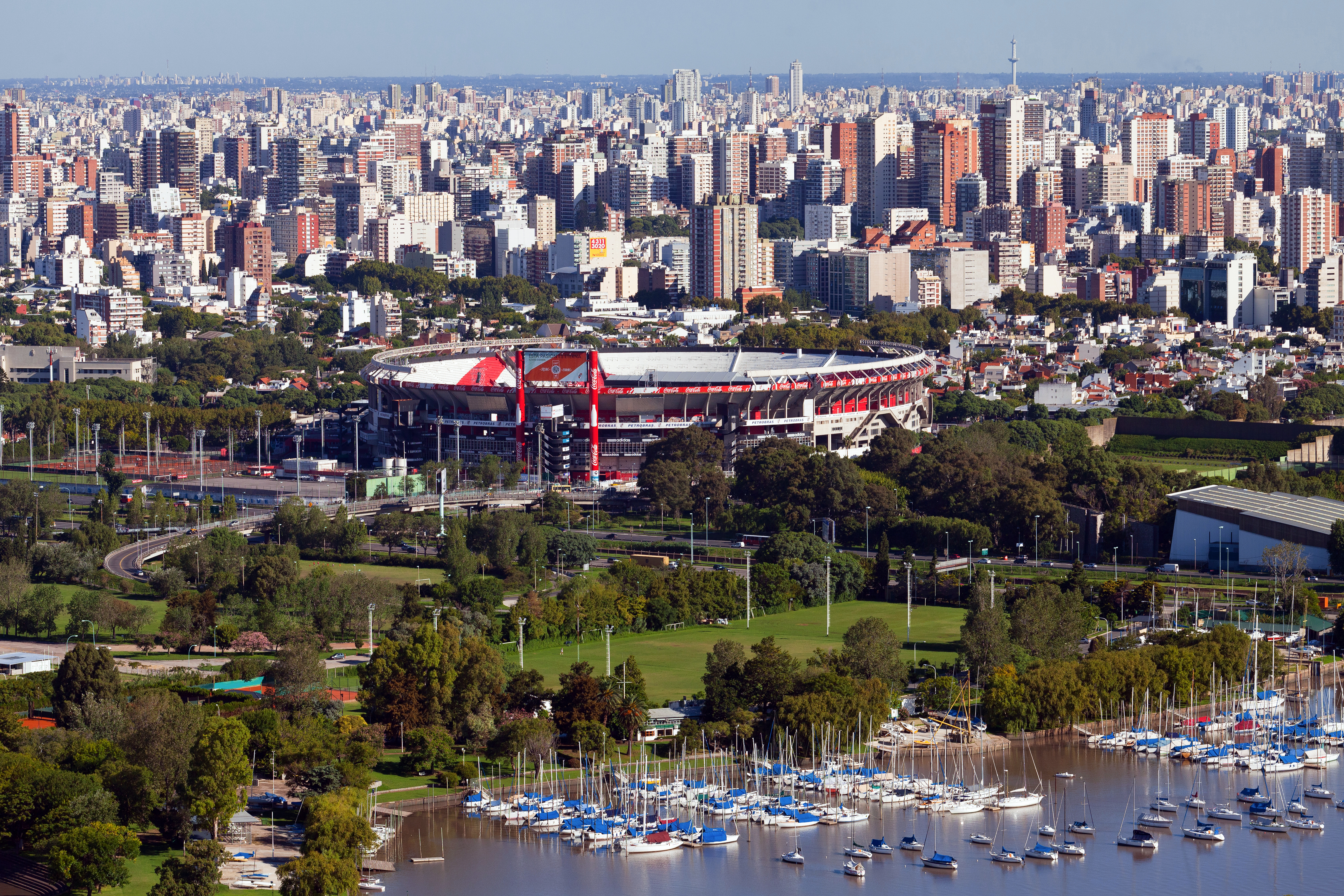
'Just' buying a ticket via the club website is not possible at Boca Juniors. All tickets are sold to 'members' or 'socios', as is the same as rival River Plate. But don't worry. There are roughly four ways to get a ticket (yes, also for a Superclásico, only the prices are a lot higher):
- Have you found a local guide with a good network, as outlined above? There is a good chance that he still has an acquaintance with a membership of Boca Juniors or River Plate. Do you have friends or acquaintances in Buenos Aires? Even better, of course. And thanks to social media, there are also all kinds of ways to get in touch with real enthusiasts, who are happy to help you on your way.
- The most 'safe' and proven way to buy a ticket is through a specialised tourist office. You will find plenty of these agencies on the internet (for example LandingpadBA ), but hotels are also happy to put you in touch with a provider. Often 'guided tours' are offered here, which include a guide who goes with you to the stadium. That may sound silly, but in the case of Boca Juniors and La Bombonera, you are assured of a valid ticket. Your escort is your 'living' guarantee that you will enter anyway. The disadvantage is that the prices are considerably higher than with a regular ticket, although by European standards this is not so bad. (On the 'grey' ticket market you often lose considerably more for a home match of, say, Liverpool).
- Another option is online ticket sellers such as ViaGogo. There is certainly a risk to that, for the same money the seller does not show up, but our experiences are quite good. Here too, it would help if a local could help make the contacts. Often you have to pick up your online purchased ticket at a cafe near the stadium. That's quite an adventure. It helps if someone close to you speaks Spanish well.
- Do you like to take a gamble? You will also find plenty of ticket dealers around the stadium on the so-called black market. Pay close attention to this, because the stories about scammers are aplenty. At Boca Juniors, tickets are like plastic credit cards, not paper. Preferably negotiate with two traders at the same time to keep the price down. Always try to physically compare your map with that of a 'local'. Is the price and date correct? Is it a children's ticket? Don't see any crazy printing errors or details that differ?
Golden tip: if you are in a group, buy one extra ticket for the seller himself. Ask him to come with you. Then you have a living guarantee with you, as it were.
BUT ISN'T IT VERY DANGEROUS?
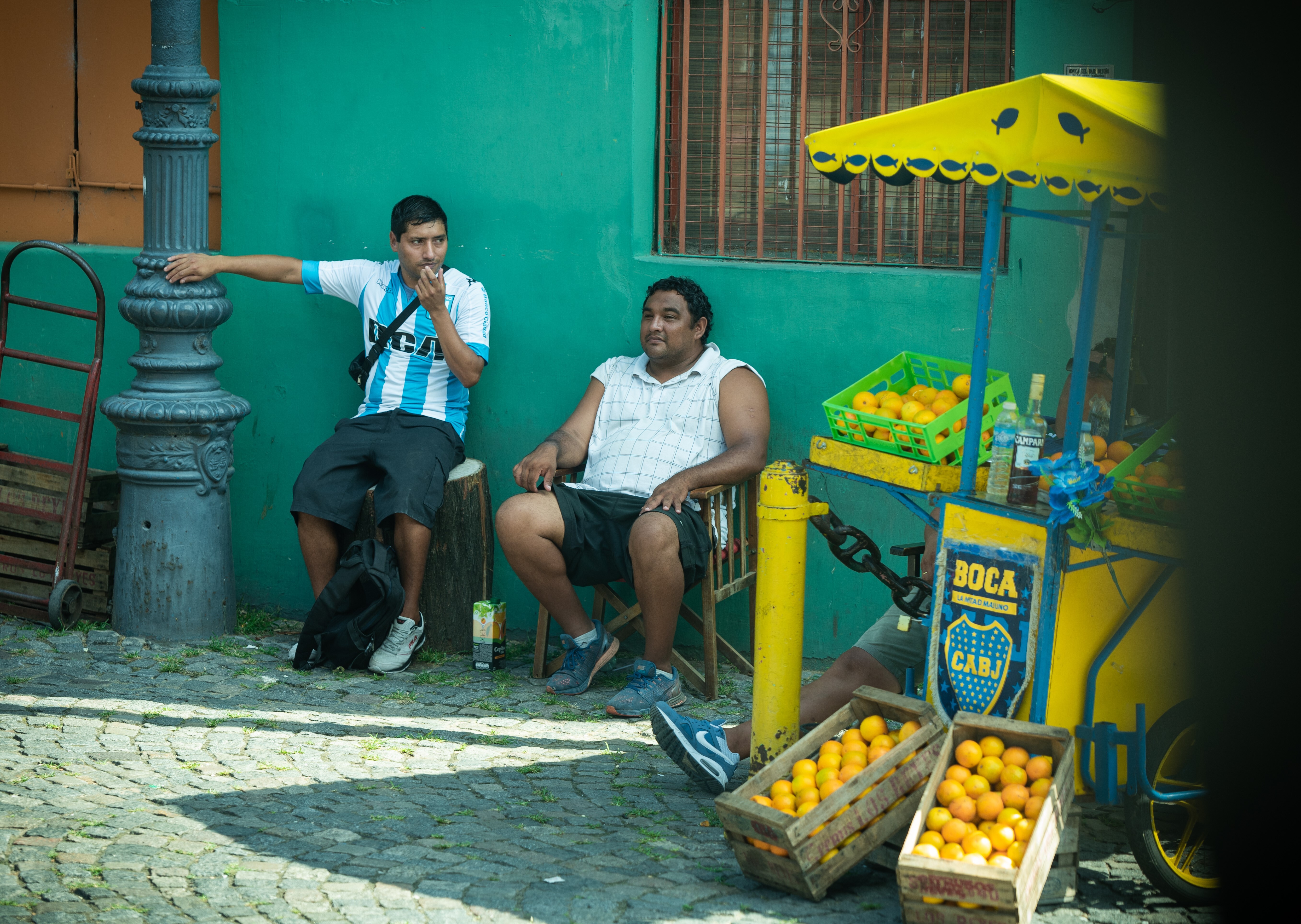
In the 1990s and at the beginning of this century, Argentine football suffered from major waves of violence. There were regular deaths and injuries in the stands, a direct result of the terror that the so-called Barras Bravas enforced in the stadiums.
Much has improved since then. Away supporters are (unfortunately) usually banned by the Argentinian federation, but that measure quelled the wave of violence. Don't be naive, a visit to RKC-Sparta is still safer, but those who use common sense can easily go to an Argentine football match. As a tourist, you are often fine and safe in the main stand. It is a little less spectacular than perhaps between the hardcore behind the goal, but you do have a beautiful view of the crowds of supporters.
Always keep in mind that Buenos Aires has a lot of dangerous neighbourhoods: don't walk the street with expensive watches, gadgets and lots of cash. The stadiums of clubs like San Lorenzo, Dock Sud, San Telmo, and Nueva Chicago are located in rough neighbourhoods, sometimes even in slums. Get dropped off as close to the main entrance as possible, preferably inside the stadium gates. A local guide will also come in handy here.
In short: be wary, but fear is really not necessary. The vast majority of Argentine football fans love that you visit their club.
There's more than just La Bombonera
It makes sense that you would like to go to Boca Juniors, or to Monumental of River Plate. The Superclásico between the two clubs is quite a bucket list job of course, but there is an infinite amount more to see in the football world of Buenos Aires and the surrounding area. So don't focus on the two usual suspects. Each of the dozens of clubs in the Argentine capital has its own charm.
The two big clubs of the Avellaneda suburb, Racing and Independiente, have their great stadiums close to each other. The loudest and most melodious crowd? San Lorenzo. The most dazzling, monumental stadium? Estadio Tomás Adolfo Duco of Huracán. The roughest clubs? Nueva Chicago and Dock Sud.
And then we haven't even mentioned strongholds such as Velez Sarsfield, Lanús, Banfield and Argentinos Juniors (Maradona's first club).
There are so many possibilities that you could almost drown in the stadiums and clubs in Buenos Aires. So keep following SANTOS Football Planet. In the coming period, we will continue to work on our stadium guides and tips articles, which are practical and handy.
Images: Shutterstock, BSR Agency
Related
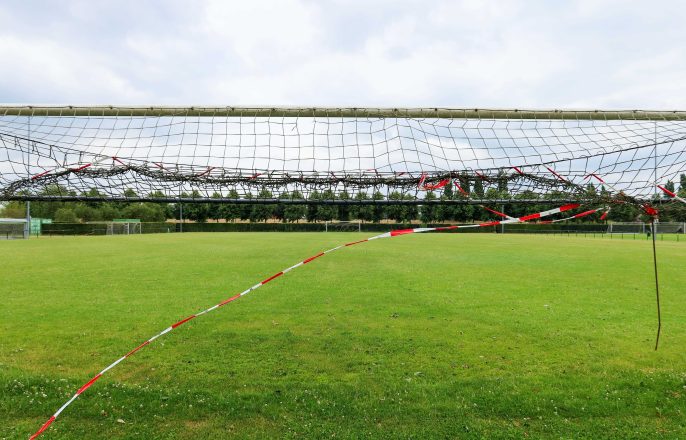
De roots van Oranje: de ruimte die Tijjani Reijnders nodig had
Articles
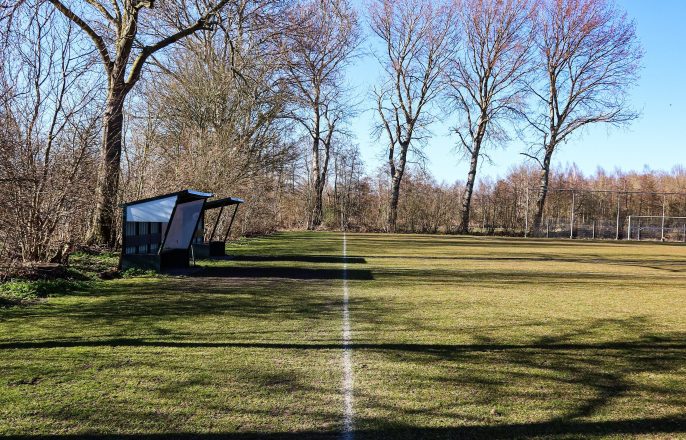
De roots van Oranje: de droom van FC Abcoude
Articles
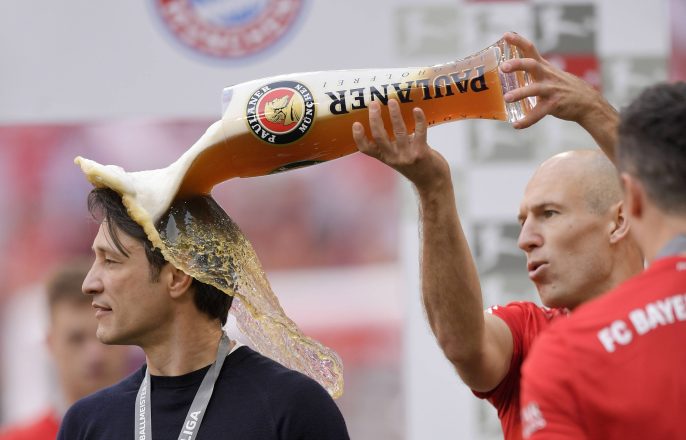
Ten places in Munich that really mean something to Bayern
Articles
